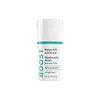What's inside
What's inside
 Key Ingredients
Key Ingredients

 Benefits
Benefits

 Concerns
Concerns

No concerns
 Ingredients Side-by-side
Ingredients Side-by-side

Water
Skin ConditioningPolysorbate 20
EmulsifyingSodium Hyaluronate
HumectantPhenoxyethanol
PreservativeHydrolyzed Hyaluronic Acid
HumectantCitrus Aurantium Dulcis Peel Oil
MaskingLimonene
PerfumingEthylhexylglycerin
Skin ConditioningPanthenol
Skin ConditioningSodium Hydroxide
BufferingPentylene Glycol
Skin ConditioningDimethylsilanol Hyaluronate
HumectantLeuconostoc/Radish Root Ferment Filtrate
AntimicrobialPrunus Armeniaca Kernel Oil
MaskingTocopheryl Acetate
AntioxidantHyaluronic Acid
HumectantSodium Hyaluronate Crosspolymer
HumectantWater, Polysorbate 20, Sodium Hyaluronate, Phenoxyethanol, Hydrolyzed Hyaluronic Acid, Citrus Aurantium Dulcis Peel Oil, Limonene, Ethylhexylglycerin, Panthenol, Sodium Hydroxide, Pentylene Glycol, Dimethylsilanol Hyaluronate, Leuconostoc/Radish Root Ferment Filtrate, Prunus Armeniaca Kernel Oil, Tocopheryl Acetate, Hyaluronic Acid, Sodium Hyaluronate Crosspolymer
Water
Skin ConditioningGlycerin
HumectantSodium Hyaluronate
HumectantHyaluronic Acid
HumectantCeramide NP
Skin ConditioningCeramide AP
Skin ConditioningCeramide EOP
Skin ConditioningPhytosphingosine
Skin ConditioningYeast Extract
Skin ConditioningAdenosine
Skin ConditioningCholesterol
EmollientPanthenol
Skin ConditioningSilanetriol
Butylene Glycol
HumectantSodium Lauroyl Lactylate
EmulsifyingCarbomer
Emulsion StabilisingXanthan Gum
EmulsifyingCitric Acid
BufferingSodium Hydroxide
BufferingPolysorbate 20
EmulsifyingEthylhexylglycerin
Skin ConditioningPhenoxyethanol
PreservativeWater, Glycerin, Sodium Hyaluronate, Hyaluronic Acid, Ceramide NP, Ceramide AP, Ceramide EOP, Phytosphingosine, Yeast Extract, Adenosine, Cholesterol, Panthenol, Silanetriol, Butylene Glycol, Sodium Lauroyl Lactylate, Carbomer, Xanthan Gum, Citric Acid, Sodium Hydroxide, Polysorbate 20, Ethylhexylglycerin, Phenoxyethanol
 Reviews
Reviews

Ingredients Explained
These ingredients are found in both products.
Ingredients higher up in an ingredient list are typically present in a larger amount.
Ethylhexylglycerin (we can't pronounce this either) is commonly used as a preservative and skin softener. It is derived from glyceryl.
You might see Ethylhexylglycerin often paired with other preservatives such as phenoxyethanol. Ethylhexylglycerin has been found to increase the effectiveness of these other preservatives.
Hyaluronic acid is naturally found in healthy skin. It is a humectant, meaning it draws moisture to your skin.
This ingredient helps hydrate, soothe, and protect the skin.
What makes hyaluronic acid so hydrating? It has the capacity to bind or hold large amounts of water.
Fun fact: It is already naturally found in our bodies, such as the fluids of our eyes and our joints.
Studies find this ingredient to have anti-inflammatory and anti-microbial properties. This can help speed up wound-healing.
Hyaluronic acid can be irritating if the molecule has a low-molecular weight, or if the molecules are small.
One study found low-molecular weight hyaluronic acid to be pro-inflammatory, meaning some people may experience irritation. This is because our bodies use hyaluronic acid in the wound-healing process to signal to our bodies, via irritation, that something needs healing.
The same study found high-molecular weight hyaluronic acid to be anti-inflammatory.
These are some other common types of Hyaluronic Acid:
Learn more about Hyaluronic AcidPanthenol is a common ingredient that helps hydrate and soothe the skin. It is found naturally in our skin and hair.
There are two forms of panthenol: D and L.
D-panthenol is also known as dexpanthenol. Most cosmetics use dexpanthenol or a mixture of D and L-panthenol.
Panthenol is famous due to its ability to go deeper into the skin's layers. Using this ingredient has numerous pros (and no cons):
Like hyaluronic acid, panthenol is a humectant. Humectants are able to bind and hold large amounts of water to keep skin hydrated.
This ingredient works well for wound healing. It works by increasing tissue in the wound and helps close open wounds.
Once oxidized, panthenol converts to pantothenic acid. Panthothenic acid is found in all living cells.
This ingredient is also referred to as pro-vitamin B5.
Learn more about PanthenolPhenoxyethanol is a preservative that has germicide, antimicrobial, and aromatic properties. Studies show that phenoxyethanol can prevent microbial growth. By itself, it has a scent that is similar to that of a rose.
It's often used in formulations along with Caprylyl Glycol to preserve the shelf life of products.
Polysorbate 20 is made by combining ethoxylation of sorbitan, ethylene oxide, and lauric acid. It is a mild cleansing agent, surfactant, and emulsifier.
As a surfactant, it helps collect dirt and oils for washing. Emulsifiers prevent oils and water from separating.
Polysorbate 20 also adds scent to a product. Since it is made using sorbitol, it has a sweet scent. Sorbitol can also be found in fruits such as apples and peaches.
The lauric acid used to create Polysorbate 20 is often derived from coconuts.
Polysorbate 20 may not be fungal acne safe.
Learn more about Polysorbate 20Sodium Hyaluronate is hyaluronic acid's salt form. It is commonly derived from the sodium salt of hyaluronic acid.
Like hyaluronic acid, it is great at holding water and acts as a humectant. This makes it a great skin hydrating ingredient.
Sodium Hyaluronate is naturally occurring in our bodies and is mostly found in eye fluid and joints.
These are some other common types of Hyaluronic Acid:
Learn more about Sodium HyaluronateSodium Hydroxide is also known as lye or caustic soda. It is used to adjust the pH of products; many ingredients require a specific pH to be effective.
In small amounts, sodium hydroxide is considered safe to use. However, large amounts may cause chemical burns due to its high alkaline.
Your skin has a natural pH and acid mantle. This acid mantle helps prevent harmful bacteria from breaking through. The acid mantle also helps keep your skin hydrated.
"Alkaline" refers to a high pH level. A low pH level would be considered acidic.
Learn more about Sodium HydroxideWater. It's the most common cosmetic ingredient of all. You'll usually see it at the top of ingredient lists, meaning that it makes up the largest part of the product.
So why is it so popular? Water most often acts as a solvent - this means that it helps dissolve other ingredients into the formulation.
You'll also recognize water as that liquid we all need to stay alive. If you see this, drink a glass of water. Stay hydrated!
Learn more about Water